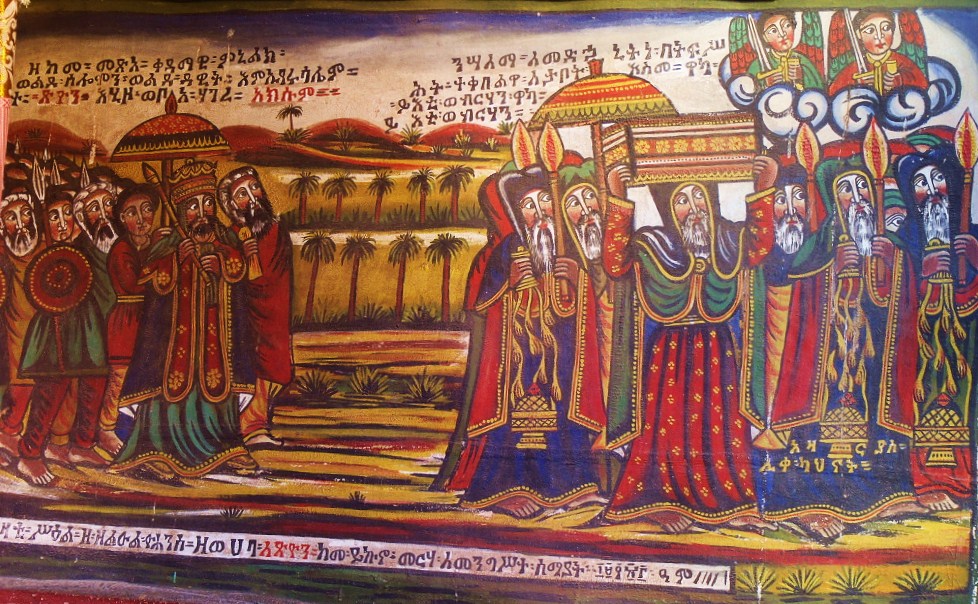
 |
Freethought & Rationalism ArchiveThe archives are read only. |
|
|
#581 | |
|
Veteran Member
Join Date: Jun 2010
Location: seattle, wa
Posts: 9,337
|
It is impossible to effectively argue against a many-headed hydra of ignorance and blindness. Each of your takes your own idiotic spin on 'how the text can be ignored.' But the bottom line is that the practices of the Therapetuae resemble that of the Essenes and Jewish sectarian groups we know of through the Qumran texts. Another example the 364 day calendar.
I had a long conversation with James Charlesworth when I was flying to Washington DC one time. He is a real expert unlike the rest of you and he acknowledges the 'Jewishness' of the 364 day calendar solar calendar Philo describes the group as using. But for those of you unable to actually make sense of what Philo is saying there is Joan Taylor's summary and her linking the practices with Ethiopian Jews who used to be centered 'down river' at the end of the Nile at Axum: http://books.google.com/books?id=m2n...peutae&f=false I am sure none of you want to understand how Jewish practices could have been shipped down the Nile look at Alexandria and Aksum on a fucking map. But I have included the map anyway in the hope that at least a few of you have some intellectual integrity. Charlesworth actually went to Ethiopia to study the cultures use of the same 364 day calendar borrowed clearly from Jews somewhere. The Therapeutae is as good a guess as any.    The arrangement of the monasteries in Ethiopia greatly resembles the description in Philo of the Therapeutae:  Here is a recent travelers description of the arrangement of the living quarters: Quote:
|
|
|
|
|
|
#582 | ||
|
Contributor
Join Date: Mar 2006
Location: Falls Creek, Oz.
Posts: 11,192
|
Quote:
Experts have been known to be wrong. This is a discussion not a pulpit. Address the issues I have raised. Please cease and desist with the worst form of offensive commentary and chest-beating. |
||
|
|
|
|
#583 |
|
Veteran Member
Join Date: Jun 2010
Location: seattle, wa
Posts: 9,337
|
You've raised absolutely no substantive issues. None whatsoever. You just want to ignore the text and quote mine to justify your ambition.
|
|
|
|
|
#584 | ||||
|
Contributor
Join Date: Mar 2006
Location: Falls Creek, Oz.
Posts: 11,192
|
Quote:
Quote:
The list of issues defining this dispute is located here: http://en.wikipedia.org/wiki/Philo%2..._Contemplativa Quote:
Quote:
|
||||
|
|
|
|
#585 | ||
|
Veteran Member
Join Date: Jun 2010
Location: seattle, wa
Posts: 9,337
|
So let's count all the reasons for identifying this sectarian group with pagan religion:
Quote:
Quote:
|
||
|
|
|
|
#586 |
|
Veteran Member
Join Date: Jun 2010
Location: seattle, wa
Posts: 9,337
|
More on the 364 day calendar shared by various Jewish sectarian groups
http://books.google.com/books?id=aLc...20gaon&f=false |
|
|
|
|
#587 |
|
Veteran Member
Join Date: Jun 2010
Location: seattle, wa
Posts: 9,337
|
Vermes also states that "from Talmudic times the recitation of the morning Shema' has been preceded by a benediction thanking God for the creation of light." http://books.google.com/books?id=F0u...god%22&f=false
If aa has a hard time making sense of Christianity having spent his whole life studying it one shouldn't expect him to be an expert on identifying 'typically Jewish practices' |
|
|
|
|
#588 |
|
Veteran Member
Join Date: Jun 2010
Location: seattle, wa
Posts: 9,337
|
Even more on the calendar of the Therapeutae as 'typically Jewish'
http://www.academia.edu/1213350/The_...ime_Periods_I_ One should also the Samaritan Sebuaeans mentioned in Abu'l Fath. The phenomenon was real and witnessed from many different sources. |
|
|
|
|
#589 | |
|
Veteran Member
Join Date: Sep 2003
Location: On the path of knowledge
Posts: 8,889
|
Quote:
|
|
|
|
|
|
#590 |
|
Veteran Member
Join Date: Jun 2010
Location: seattle, wa
Posts: 9,337
|
Also very interesting is that various scholars connect the Philonic reference to the Therapeutae with a newly discovered reference from Saida Gaon:
A further important field raised by the Lewys pertains to the pentecontad festivals in Philo's account of the Therapeutae.15 Following their treatment, some writers noted a pertinent passage from the Cairo Genizah, ascribed to the Kitab al-tamyiz of R. Sa'adia Gaon, in which the writer ascribes to “Judah the Alexandrian” a statute about celebrating harvest festivals (in addition to the cereal festival mentioned in Leviticus); these festivals stand fifty days apart in the calendar. [http://books.google.com/books?id=aLc...rt%22&f=false] |
|
|
| Thread Tools | Search this Thread |
|